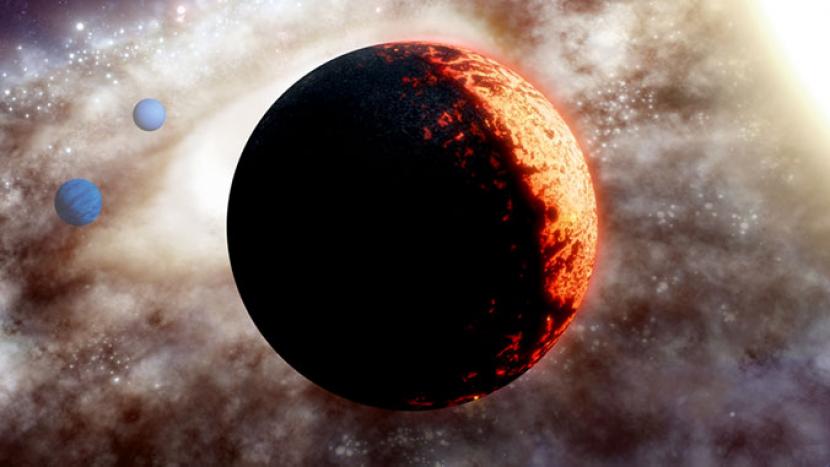Exoplanets have been the subject of intense data collection campaigns. At just 15 million years old, HD-114082b is one of the youngest exoplanets ever discovered. Understanding its properties may provide clues about how planets form.
Scientists use transit data and radial velocity data to calculate the planet’s mass. Transit data are records of how a star’s light fades when an orbiting exoplanet passes in front of it. If we know how bright the star is, the faint dimming can reveal the size of the exoplanet.
Radial velocity data is a record of how much a star wobbles in place in response to the exoplanet’s gravitational pull. If we know the mass of the star, the amplitude of the wobble can tell us the mass of the exoplanet.
For nearly four years, the researchers have been collecting observations of the radial velocity of the star HD-114082, the parent of the exoplanet HD-114082b. Using combined transit and radial velocity data, the researchers determined this HD-114082b it has the same radius as Jupiter, but eight times the mass of Jupiter. This means that the exoplanet is about twice the density of Earth and nearly 10 times the density of Jupiter.
The size and mass of this young exoplanet mean that it is very unlikely that it will become a rocky planet. The upper limit of a rocky planet is about three Earth radii and 25 Earth masses. There are also very small density ranges on rocky exoplanets. Above this range, matter becomes denser and the planet’s gravity begins to maintain a significant atmosphere of hydrogen and helium.
HD-114082b far exceeds these parameters, which means that it is a kind of gas giant. However, astronomers don’t know how this happened.
‘It’s interesting how our observations impact theories of planet formation. They help increase our knowledge of how this giant planet grew and tell us where the gaps in our understanding lie.’


